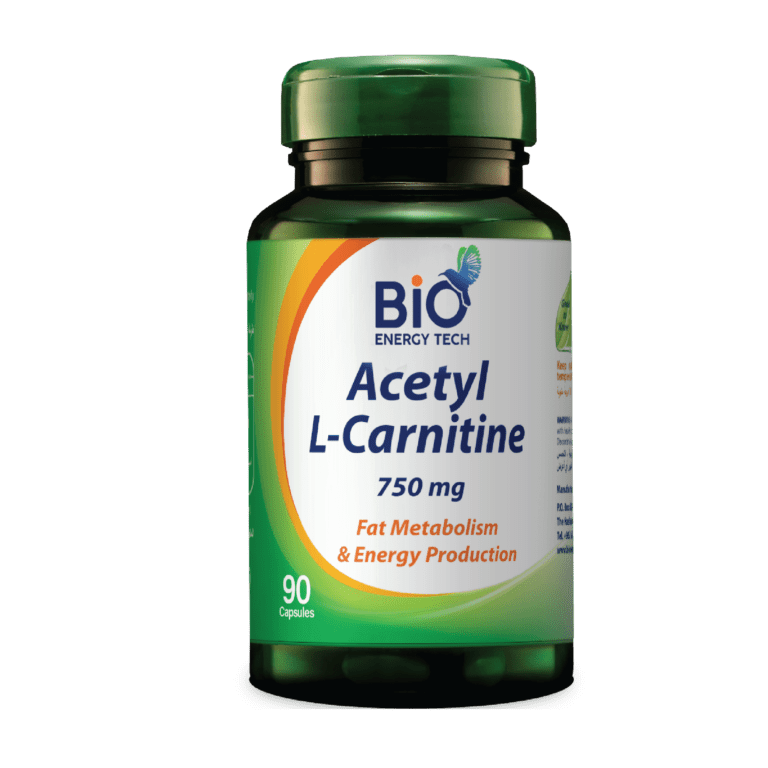Overview
Acetyl-L-carnitine (ALC) is A modified amino acid formed by the acetylation of L-carnitine in the mitochondria, both of which are used to help the body turn fat into energy .This modification gains ALC an advantage by making ALC more easily absorbed from the gut, and more readily crosses the blood-brain barrier.
ALC has a beneficial effect in treating Alzheimer’s dementia, depression in the elderly, ischemia and reperfusion of the brain, cognitive impairment of alcoholism and improving memory and thinking skills.
ALC also gained a great clinical interest for its analgesic effect in different forms of neuropathies associated with chronic pain, such as diabetic and HIV-related peripheral neuropathies.
Mechanism of Action
The exact mechanisms of action of ALC are unknown, but current research indicates they may be related to both ALC’s cholinergic neural transmission activity and its ability to enhance neuronal metabolism in the mitochondria
Clinical Indications
Age-related testosterone deficiency (“male menopause”).
Taking ALC helps in symptoms related to declining male hormone levels such as mood, energy and sexual dysfunction in much the same way the male hormone testosterone does.
Alzheimer’s Disease
ALC have neuroprotective properties and many studies showed a reduction in attention deficits, behavioral deterioration, and improvement in long-term memory performance in patients with Alzheimer’s disease (AD) after long-term treatment.
Cerebral Ischemia and Reperfusion
ALC plays a therapeutic role in the treatment of cerebral ischemia through mechanisms that include faster recovery and improvement of brain energy production as well as a decreased lactic acid content during early post-ischemic reperfusion.
Depression
ALC which is a crucial mediator of fat metabolism and energy production throughout the body, plays a special role in the brain, where it works at least in part by preventing the excessive firing of excitatory nerve cells in brain regions : the hippocampus and frontal cortex
Diabetes mellites
Many studies showed that ALC treatment is efficacious in alleviating Diabetes symptoms, particularly pain, and improving nerve fibers regeneration and vibration perception in patients with established diabetic neuropathy.
Other studies showed that Type 2 diabetic patients receiving ALC have a higher insulin-stimulated glucose utilization in a dose-dependent manner
Cardiovascular
Like L-carnitine, ALC enhances fatty acid transport for ATP production in the mitochondria of both skeletal and heart muscle, thereby affording protection from free-radical damage.
ALC ameliorate hypertension, vascular function and insulin resistance in metabolic syndrome and coronary artery disease
Other indications studies showed that ALC might be of a benefit in:
- Attention deficit, hyperactivity disorder (ADHD) and fragile X syndrome
- Antiretroviral neuropathy
- HIV infection
- Diabetic Cataract
- Peyronie’s disease
- Alcohol withdrawal
- Hepatic encephalopathy and coma
Dosing
ALC is usually given orally in tablet or capsule form with dosage ranging from 1-3 grams daily, in divided doses.
If administered intravenously, the dosage is usually 1500-2000 mg.
Side effects
ALC is considered safe, without incidence of significant side effects, even with long-term administration.
The most common adverse reactions noted have been agitation, nausea, and vomiting.
Pregnancy and lactation:
ALC has not been thoroughly studied clinically in pregnancy and breast-feeding mothers so it’s advised to avoid using it.
Special precautions and warnings:
– Neuropathy caused by chemotherapy: ALC might worsen nerve pain caused by taxanes (class of chemotherapy drugs).
- Hypothyroidism: ALC might interfere with thyroid hormone…not to be used in hypothyroidism
- Seizures: L-carnitine makes seizures more likely in people who have had seizures before. Since L-carnitine is related to ALC, there is a concern that this might also occur with acetyl-L-carnitine. Therefore, ALC should be avoided in patients suffering from nerve spasms.
Major Interaction
ALC may interfere with drugs that treat or prevent blood clots:
- acenocoumarol/nicoumalone (Sintrom): ALC might increase the effectiveness of acenocoumarol which might slow blood clotting too much.
- Warfarin: ALC might increase the effects of warfarin and increase the chances of bruising and bleeding. The dose of warfarin might need to be adjusted .
RELATED PRODUCTS
-
60 Tablets
BioCal Ultra – Chelated Calcium + Magnesium + Vitamin D3 | Bone & Pregnancy Support | 60 Tablets | Halal Certified
23.69 $ USDAdd to cartRated 0 out of 5








